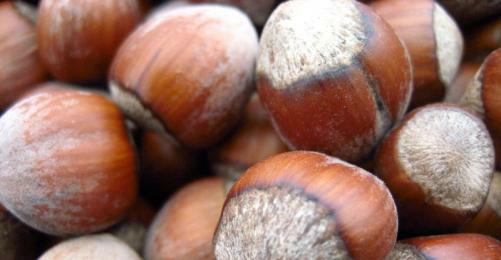Kürşat Yaşar, of the hazelnut farmers' trade union Fındık-Sen, has said that the government's newly announced policy will only serve capitalists.
On Tuesday, 14 July, Minister of Agriculture Mehdi Eker announced the changes, which were published in the Official Gazette on the following day. They can be summarised as follows:
* Giving up hazelnut production: People who own land with less than a 6 percent slope and at an altitude of more than 750 metres will be supported if they give up production.
* Support next year: The other producers will be paid 150 TL (around 75 Euros) per thousand square metres as of 2010.
* The government's Turkish Grain Board (TMO) will no longer buy hazelnuts.
Dependency on capitalists
Speaking to bianet, Yaşar said that particularly the last change will leave hazelnut farmers dependent on capitalists to determine market conditions.
The lack of support for 2009 means that hazelnut farmers will be paid less by domestic traders this year.
In general, while domestic prices stand at 1.5 TL per kilo and exporters pay 2 TL at the most, Yaşar argues that a kilo needs to cost at least 5.5 to 6 TL to allow for a 25 percent profit margin and a 25 percent humane living margin.
He further criticised the promised support for next year, saying that it would work out as 1 to 1.5 TL per kilogram of nuts.
The minister has said that the TMO has got enough nuts to meet a year's needs. However, the trade unionist says that the TMO has been known to sell the supplies to big companies before, and could now do the same.
Around 77 percent of hazelnut production worldwide happens in Turkey, and the country received a net income of 2 billion dollars net from hazelnuts in 2007. Exporters buy at low prices and sell at high ones.
Traditional hazelnut region at risk
Yaşar said that they also supported limiting the spread of hazelnut production; in 1960, there was hazelnut farming in three provinces, and now it exists in 39. However, the planned policy will target the Black Sea region, where there are 100-year-old gardens on steep slopes.
He also warned that the government is taking other agricultural products into hand, saying that multi-national capital was trying to dominate with industrial agriculture. For Yaşar, smaller producers needed to protect themselves with cooperatives.
Besides maximising the potential of cooperatives, Yaşar also suggested creating networks of support and global resistance with producers in Italy, France, Spain and the Caucasus. (TK/AG)











